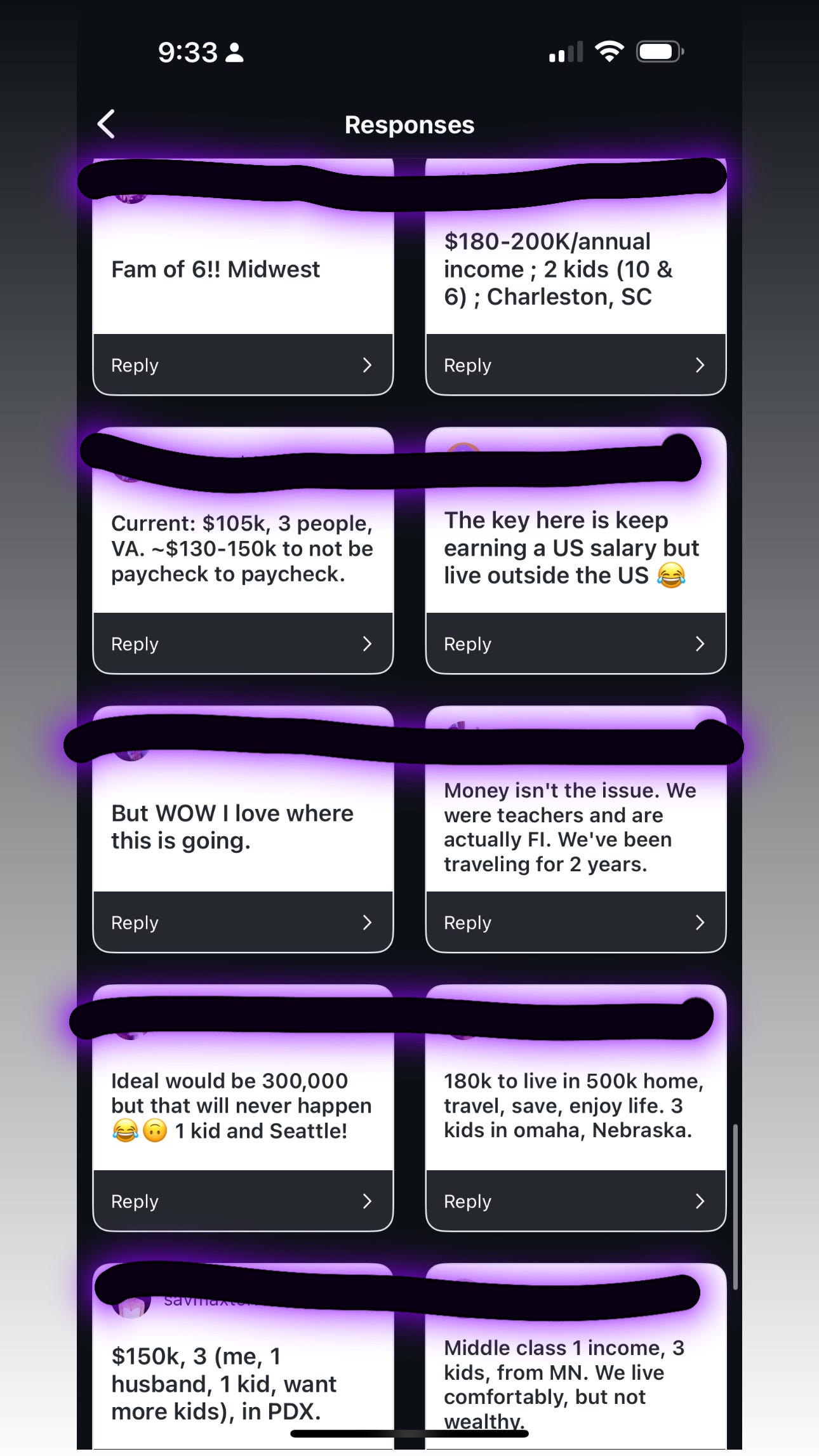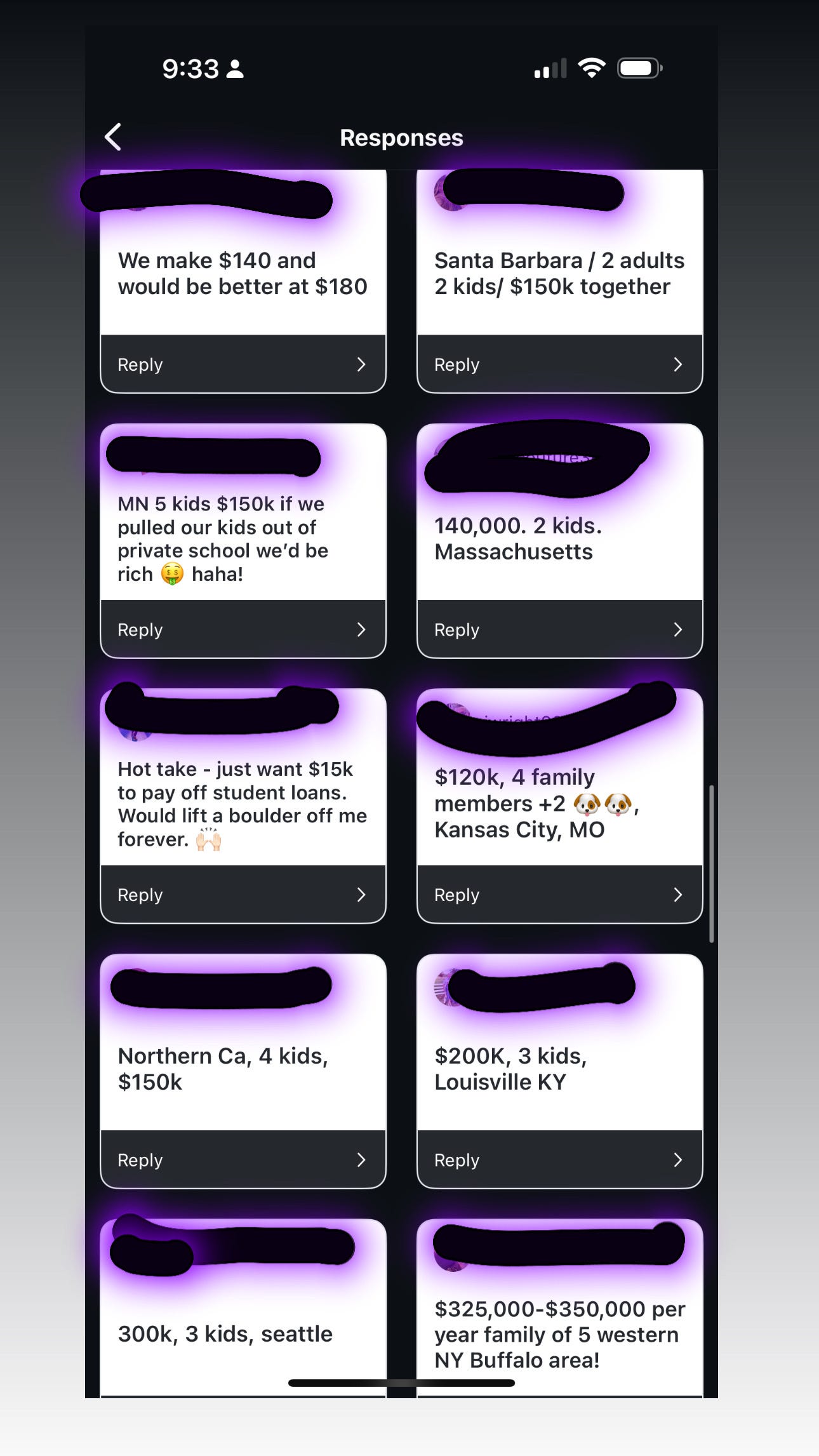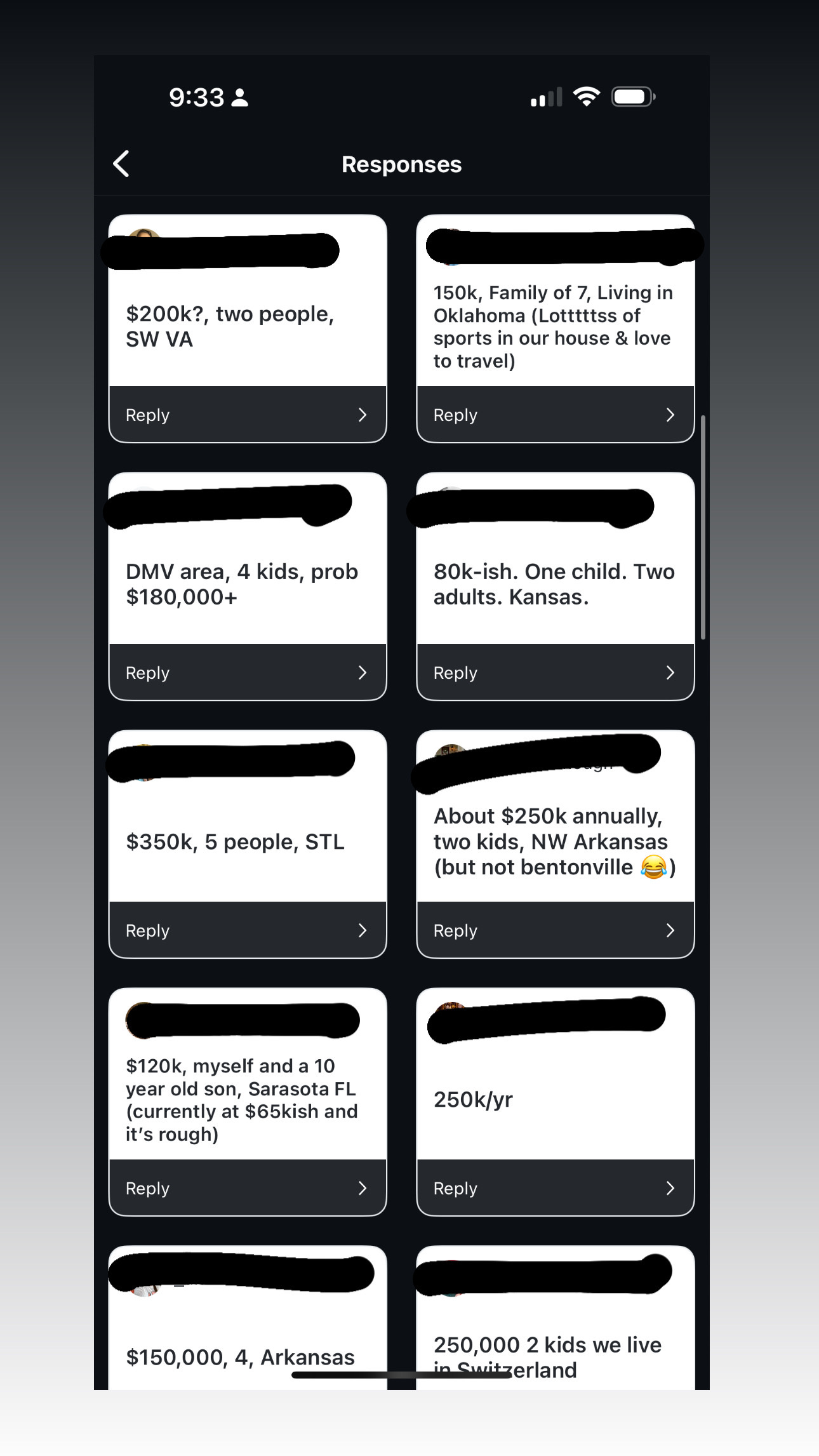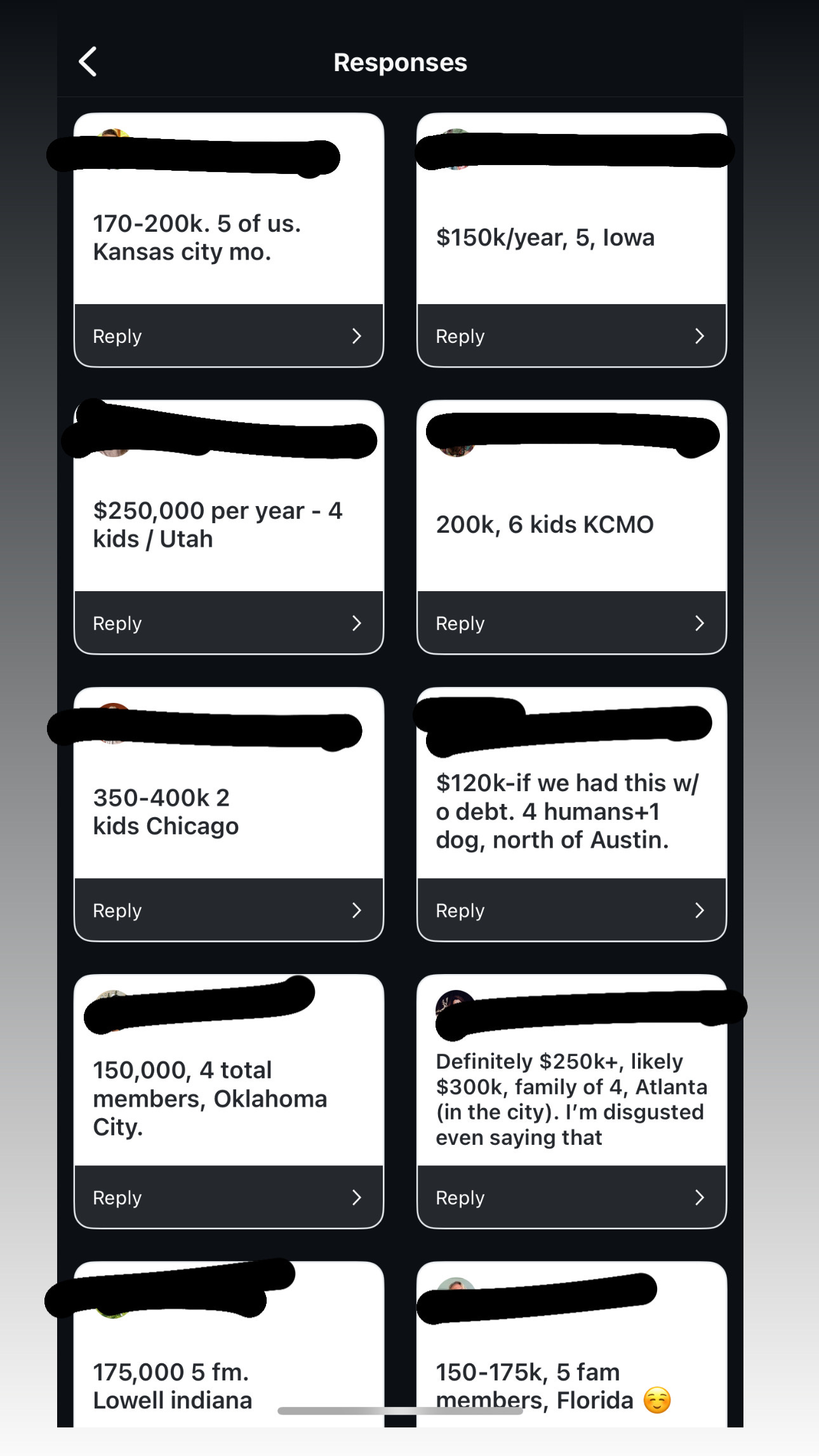HOW MUCH IS ENOUGH?
01:13 – Introducing the Topic: Enoughness & Money
A few weeks ago, I asked my Instagram community how much income they felt they'd need to feel like money wasn’t holding them back from thriving — not in a dream world, just realistically. The responses poured in, and I was hooked. The question wasn’t just about money; it was about defining enough in all aspects of life: success, impact, and contentment. I will post those Instagram responses at the end of this summary for you to peruse! (Sorry, the weird glow highlighter thing turned on and I couldn’t figure out how to turn it off, lol 👵🏻)
04:00 – Survey Responses: The Wild Range of “Enough”
The answers varied wildly—from $48K/year for a family of four in North Dakota to $500-750K/year for a family of four in Chicago. The average? Probably around $200K/year for a family of four. Only about 10% of Americans make that much, which was sobering and thought-provoking.
08:45 – Does More Money = More Happiness?
We talked about that stat—how studies suggest happiness peaks somewhere around $100K–$150K, and one study said even up to $500K, but the research is clear that eventually, more money stops contributing to contentment and fulfillment. That sparked a convo around what it means to be part of the “comfort class”—not wealthy, but not stressed either.
10:55 – Defining a Spending Cap vs. Income Cap
Ben and I have wrestled with defining “enough” and a “spending cap”—not to restrict ourselves, but to free us. Once our values are supported and we’re thriving, anything above and beyond can go toward giving, saving, or sharing. The flip side is that our annual income could decrease without a drastic shift in our lifestyle. That discipline fights back against the trap of lifestyle creep and helps us stay grounded in what matters most to us.
13:00 – Community as a Financial Philosophy
Living in an intentional and proximate community has completely shifted how I view money and success. It’s not about depriving ourselves; it’s about choosing shared life over upgrading based only on our nuclear family’s ability and preference. Often, I choose simplicity not out of frugality, but because it fosters deeper connection and friendship.
17:00 – The Myth That Community Is a Luxury
I wanted to challenge the idea that communal living or shared values are only accessible to the privileged. In fact, globally, it’s often less affluent communities that report stronger social bonds. Community is more accessible—and more crucial—than we think.
21:00 – Joy & I Talk Trade-Offs and Simplicity
Yes, we both still dream (hello, Redfin obsession), but it’s through the lens of community and friendship. We’re not anti-ambition or upgrades. We’re just aligning our ambition with our deepest values and desires. Choosing simplicity isn't about guilt; it's about what brings the most joy and freedom in the long run.
25:00 – Redefining Success: The Success Matrix
For me, ambition and contentment aren’t mutually exclusive. I've become obsessed with defining success in every area of life—career, relationships, motherhood, and community. That clarity helps me resist the temptation to chase someone else's version of success. It also helps me realize that when you use a wholeistic matrix, what might appear to someone on the outside as “less ambitious” might actually be quite ambitious.
30:00 – Joy’s Focus Lab & Career Pivot
Joy shared how a FocusLab helped her let go of part of her business that wasn’t serving her anymore. She reframed parenting time as client time—because those one-on-one moments with her kids are where the magic happens. That mindset shift transformed her business and her bank account.
36:00 – Privilege, Struggle, and Reframing
We acknowledged that this whole conversation sits atop privilege. But we also talked about how struggle can build resilience and connection. Struggling doesn’t mean you’re failing your kids. Often, it can foster stronger long-term relationships and deeper values.
38:00 – Liz’s Spreadsheet of Values
Okay, confession time: I keep a daily spreadsheet called Liz’s Life in Numbers. It tracks time spent related to my values—vocational time, relationship time, screen-free hours with my kids, mental/physical health, and more. I don’t do it to be a Type A robot—I do it because I believe a purposeful life has to be lived on purpose, and this is just one tool that helps me stay connected and accountable to my core values.
(Here is a snapshot of that spreadsheet. In my real one, each column has a “notes column” next to the numbers column, where I give a little more color/detail to the numbers. I removed those columns to make it easier to see all the categories in one screenshot, and because this is kinda like my diary, and it's the internet 😁.
As always, we read every comment and are LOVING the feedback and input our Club Members are contributing. We know there are a LOT of corners of the Interwebs you could be hanging out it, so truly, thanks for being with us, here! <3




















